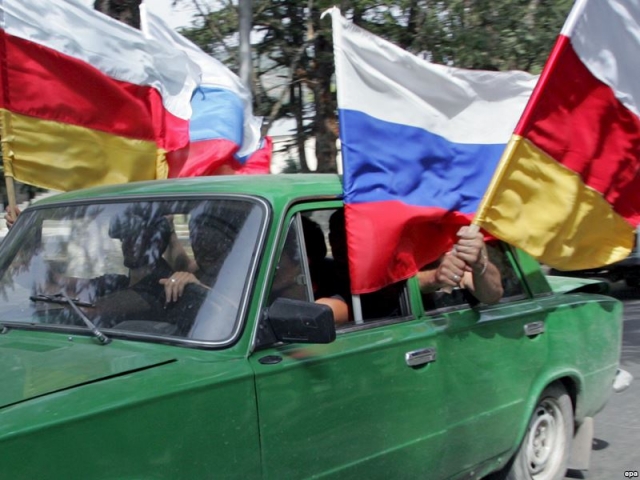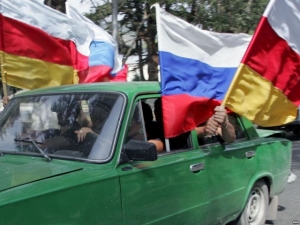South Ossetia’s Rebel Government Delays Referendum on Joining Russia
TSKHINVALI, South Ossetia – The separatist government of Georgia’s breakaway South Ossetia region announced Monday that they would postpone a planned referendum on joining the Russian Federation until 2017.
In a joint statement released late last week, the region’s de facto President Leonid Tibilov and parliamentary speaker Anatoly Bibilov said the referendum would take place after both run as rival presidential candidates in an election scheduled for early next year.
The statement said that both Tibilov and Bibilov had agreed to postpone the planned referendum in an attempt to “preserve unity and political stability in the republic.”
Long a public supporter of unification within Moscow, Bibilov’s call for full unification with Russia’s Republic of North Ossetia-Alania is thought to have strong support from the local population in South Ossetia.
Bibilov has been sharply critical of Tibilov’s handling of the region's relations with Russia, including a public dressing down of the region’s de facto government after it signed a bilateral treaty on Union Relations and Integration between Russia and South Ossetia. Bilbilov said in early 2015 that the proposed treaty would fail to address the public's desire for full integration with Moscow.
The treaty obliged Russia to act on the breakaway region's behalf and push for broader international recognition of South Ossetia’s independence. Since being recognized as an independent state by the Kremlin, only Venezuela, Nicaragua and the tiny Pacific island of Vanuatu have recognized South Ossetia’s independence.
In contrast to his political foil Bibilov, Tibilov’s approach towards Moscow since his April 2012 election as the separatist region’s president has been to push for closer integration, but has stopped short of calling for full incorporation into Russia.
Though he has defended South Ossetia’s nominal independent status, Tibilov has frequently described South Ossetia's incorporation into Russia as a long-term project for the rebel government and the dream of the region's residents.
Tibilov has never set a timeframe for South Ossetia’s accession to the Russian Federation, but he has said on numerous occasions that the region would eventually be incorporated by Moscow as a separate federated republic instead of unifying with their ethnic kin in North Ossetia.
Georgian government forces fought two devastating wars against Russian-backed separatists in South Ossetia between 1991-2008. The fighting left thousands dead and led to the ethnic cleansing of all ethnic Georgians in the region.
Moscow recognized the rebel region’s independence following the 2008 Russian-Georgian War.
By Nicholas Waller












